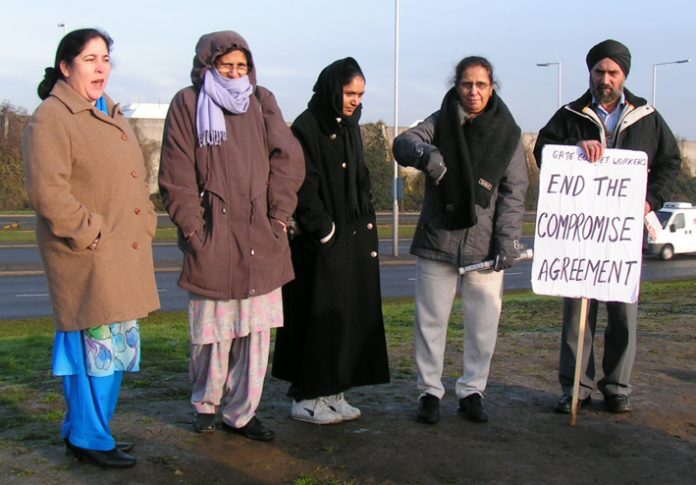
NATO foreign ministers, meeting in Brussels, have endorsed a plan to expand the alliance’s role in Afghanistan with Britain taking the lead.
It will involve initially deploying 6,000 more troops, at least 4,000 of which are expected to be British troops.
NATO at the moment has 11,000 troops in Afghanistan, mainly in the north and west, while the US leads a force of nearly 20,000 in southern and eastern Afghanistan where heavy fighting is now taking place with Taleban forces.
The American force is expected to be withdrawn and sent to Iraq in stages, and will be replaced by British forces who will also be taking the lead in the NATO headquarters in the Afghan capital of Kabul.
The remaining non-British NATO forces will be based in Kabul and northern Iraq where they will remain ‘promoting peace and stability’ but not seeking to actively hunt down the Taleban.
It is expected that the fighting in southern and Eastern Afghanistan is going to get fiercer and fiercer.
This year a number of US helicopters have been shot down and US casualties have been heavy. This has led to the launching of US psychological operations, using the ‘psy-ops’ tactics, that Human Rights Watch has stated break the Geneva conventions governing armed conflict.
US troops have also been dishing out ‘collective punishment’ in the areas where they have taken the biggest hits.
It is this legacy that the incoming British troops will inherit.
The bulk of them will come from southern Iraq where British forces are no longer welcome, and are not strong enough to impose themselves as an army of occupation.
The UK has sent former RUC police chief, Flanagan, to Basra in southern Iraq to carry out a review of the situation there.
He has already stated that the puppet police forces are heavily infiltrated by members of the various Islamic militias, and that Britain has no control over them.
He has already stated that the recent British army all-out attack on a police station in the city of Basra, after a number of SAS officers were captured in the city, has lost what little support the British army had.
Flanagan has stated that having lost the campaign for ‘hearts and minds’ the only alternative is a policy of securing the occupation.
It is common knowledge that the British forces do not have the capacity to do that.
So from the start of next year Iraqi puppet forces, with a nominal loyalty to the Iraqi puppet government, will start replacing the British forces.
This is being called the beginning of the British withdrawal from Iraq. What is not being said is that the withdrawn troops will be going from the Iraq frying pan into the Afghan fire where the entire population will be actively hostile to them and where they will have to fight for their lives.
They will be facing the kind of situation and the degree of hostility that US forces are facing in western Iraq.
Casualties will therefore mount, and more and more reinforcements will have to be sent.
British workers are completely opposed to this policy and want to see all British troops withdrawn from Iraq and Afghanistan, and an end to the imperialist assault on those countries.
They must demand that the British trade unions and the TUC tell the Blair government that an end must be made to the Iraq and Afghan wars and that all British troops must be withdrawn from both countries, or else the trade unions will bring down the Blair-Brown government.
"The vast majority of Iraqi security forces are courageous and are doing a very good job," he told the BBC.
On Friday, Mr Reid said Iraqi security forces could take control of some UK-run areas of Iraq in 2006.
He said the quality of the 210,000 Iraqi security forces meant the handover could start next year.
Iraqi President Jalal Talabani has said British troops could leave by the end of 2006. Ninety-eight UK soldiers have died since the invasion in 2003.
